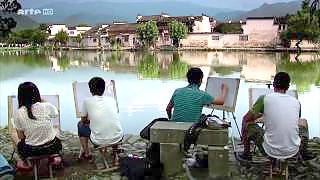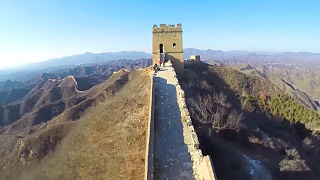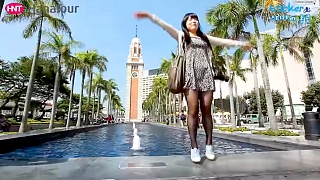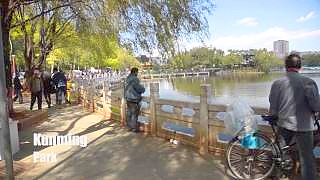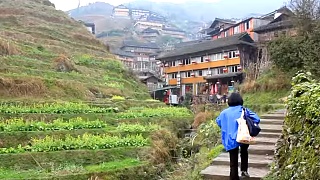"US-sponsored separatist groups, backed by Washington for decades, are being mobilized to attack and undermine activities related to the BeiJing 2022 Olympics, starting with the torch relay in Greece.
I explain the background of the “Free Tibet” movement and how the US government, through the CIA, backed it as early as the 1950s and transferred its operations to the National Endowment for Democracy (NED) [or 'Dominion' / enslavement]."
With The New Atlas ...
[640],shadow=true,start=,stop=Bonus films - terror activities by US-backed 'opposition' in Myanmar ...
[320],shadow=true,start=,stop= [320],shadow=true,start=,stop= [320],shadow=true,start=,stop= [320],shadow=true,start=,stop=Bonus film 2 - subverting the 'left' ...
[320],shadow=true,start=,stop=Bonus film 3 - on Ecuador ...
[320],shadow=true,start=,stop=Bonus film 4 - on Cambodia ...
[320],shadow=true,start=,stop=They say : "How dare you put your face in front of my fist ! Serve your master. Or else."
More ...
[320],shadow=true,start=,stop= [320],shadow=true,start=,stop= [320],shadow=true,start=,stop= [320],shadow=true,start=,stop= [320],shadow=true,start=,stop= [320],shadow=true,start=,stop= [320],shadow=true,start=,stop= [320],shadow=true,start=,stop=On the US plan to nuke Chinese cities - as revealed by Daniel Ellsberg, famous for the 'Pentagon Papers', with NuMuves ...
[320],shadow=true,start=,stop=On the Falun Gong cult ...
[320],shadow=true,start=,stop=

 *** Planning war on China – part 11 – don’t miss it ***
*** Planning war on China – part 11 – don’t miss it ***





















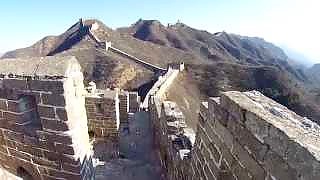
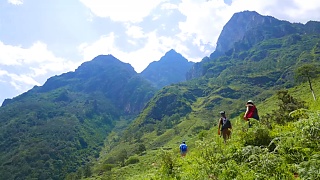







![Planning War On China part 40 (the encore). From now, all similar content will be on the new Geopolitics page, so do check that out and bookmark. Something Different, health, and psychology videos are likely to also move to their own pages. So we will still cover all these aspects of life, but have more time to focus on Chinese culture and China travel. *************************** Official racism is a very important fact to consider, and because it is is based on propaganda, can be easily missed for what it really is. Yet once seen, it is all so clear. Us and Them - is the sales pitch of supremacists and bomb companies. That is ALL it is. There is no `us and them`; that is just a scam to fool you into obedience / subservience / enslavement. The real schism is that there are real / open-eyed people, and then there are the brainwashed / believers people. Simple as that. Puppets at the top; puppets at the bottom. One life, one world, one family. One has love, or one does not. Real love doesn`t have targets; real love is a light that shines in all directions. Onto the video film . . . With George Galloway in conversation with Jerry`s Take on China . . . Bonus films . . . George at his very best - don`t miss it . . . What is more important - life or money (power) ? Simply believe ? Or be free to see reality ?? No longer puppet. Live more . . . Because it is not about `me` (that is the scam / fantasy, and a big topic in itself - `your problems are all your fault`, is part of it); it is really about `WE`. In China, the people are family. In the West, the people are livestock. And that is the `threat`. [ video v=fIxPv2Dn_P0 ] Oliver Stone interviews Vladimir Putin . . . Taiwan the next Ukraine ? . . . Lee Camp . . . [ video v=OSkpIq3T-Zc ] Racism is racism is racism. There is NO excuse, no matter how `official` it is sold to you. Something like 3 million died in the Vietnam war (not including the carpet bombing of Laos and Cambodia), alone. This is what racism entails. How many times will this lie play out ? Meanwhile . . . Peace. Official racism. Reality is so very different from the 'official' / MSM narrative / fairy tale - DON'T MISS THIS !](https://img.youtube.com/vi/Kc7f4JKhwtk/mqdefault.jpg)











